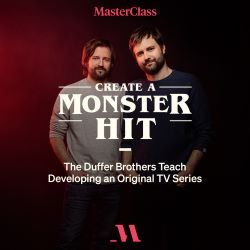The appeal of new music. Or lack of thereof.

text: Michael Raine | photography: Brian Patterson
If you’re over the age of 40, it has probably already happened to you, even if you can’t pinpoint the exact moment it started (if you are under 40, continue reading this is relevant to you too). If you’re in your 30s, you can probably sense it coming and may put in a futile effort to avoid it. Recently, you read the review in the newspaper went to Chapters to pick up the latest Steve Jobs biography.
You watched the Oscars and headed to the Cineplex to watch The Descendants. But after watching the Grammys (or, more accurately, scanning the winners list in the paper because who actually watches the Grammys anymore?) you had no inclination to listen to the new Bon Iver album. That’s because you`ve reached the point in every casual music fan’s life where listening to new music ceases to be an appealing use of your time.
However, as I see it, this isn`t because adults don’t like new music but because the music industry is doing a lousy job of exposing adults to the new music that they do like. And so, many adults have reached the conclusion that there simply isn’t any new music they like. As such, there is a potentially huge demographic of people willing to pay for music but who aren`t hearing the new music that they’d be willing to pay for. It’s a shocking situation given all the doom-saying in the music industry over declining album sales.
I recently came across a 2011 article on Avclub.com (which has developed into one of the best sources of thoughtful music commentary), which wasn’t so much an article or column but a dialogue between two music writers, Steven Hyden and Noel Murray (33 and 41 years old, respectively, at the time the article was written), that centred on the question, “why do pop-culture fans stop caring about new music as they get older?” It’s not a terribly original question, though it’s one that has been debated consistently since Elvis’ gyrations first scandalized the world from the stage of the Ed Sullivan Theater.
However, Hyden brought up a point that I had never considered, which is that the same people who haven’t sought out new music since John Lennon died – and often go out of their way dismiss new music as trash – are not similarly content reading the same books or watching the same movies and TV shows they did in 1975. Essentially, as people get older they maintain their desire for new movies, TV, and books but do not entertain a desire for the other cornerstone of pop-culture, new music. Hyden adds that pop culture fans tend to accept that there is a continuum, or constant evolution, in most forms of art “and yet with music, we’re still tied to our own childhoods.”
In his response, Murray makes the excellent point that the way we consume art differs from medium to medium, and it is easier, and more lastingly enjoyable, to recycle music than other art forms. You can listen to your favorite albums countless times without tiring of them but very few people will read their favorite books or watch their favorite movies more than 10 times, and therefore requiring a more constant flow of new books and movies to keep us entertained. The other common, and valid, reason usually given for adults’ lack of interest in new music is that as you get older it becomes harder to relate to the sounds and subject matter of new music.
However, as valid as these and many other well-articulated explanations are, they ignore the issue of exposure. As I’ve mentioned in past columns, there is more new music being released now than ever before. The sheer number of new albums released each year would suggest that everyone should like something new; they’re maybe just not being exposed to it. Therefore, the issue isn’t that people like new movies, TV shows, and books but don’t like new music, the issue is that people are finding the new movies, TV shows, and books that they like but aren’t finding the new music that they like.
As unreceptive as people may seem to new sounds, the passing of years makes them equally unreceptive to new anything. If you don’t like fantasy movies by the time or 40, you’re likely not going to start watching them now. Likewise, if you don’t like electronic music by the time you’re 40, it’s likely too late to get into Skrillex. On the other side of the equation, if you’re over 40 and like history and biographies, you’ve probably seen Meryl Streep in The Iron Lady, watched a few episodes of Boardwalk Empire and read the Steve Jobs biography. But if you like folk music you probably haven’t heard the new Damien Jurado album. Why? Because new movies, shows, and books that are likely to appeal to adults are marketed and exposed to adults. But new music that is likely to be enjoyed by adults is, for whatever reason, often not successfully marketed and exposed to them.
From my experience, adults who loved the folk rock of Crosby, Still and Nash in 1970 will hear something they like in Fleet Foxes and Bon Iver if I play it for them. Those who loved the blues rock of Led Zeppelin and Cream will appreciate The Black Keys and Jack White.
Young music fans shouldn’t expect, or even want, adults to like all new music, because music has to move forward and that means alienating some people, but there is similarly no reason to believe that one’s thirty-fifth birthday denotes a progressive dislike of all new music.
Just look at Adele. Britain’s new soul queen, who makes music that is easily digestible for the over-40 crowd, now has the eighth best-selling album in British history. This is not because “21” is a great album – which it is – but because it is nearly impossible to be a living, breathing human being over the last year and not hear Adele’s songs everywhere you go.
A funny thing happens when adults hear new music they can appreciate, they actually buy it.
Granted, Adele may be extreme example but what has her success taught us? She’s proven that adults still care about new music and will buy it if they can relate to it and are exposed to it. So therefore, the problem isn’t making people still care about new music as they age; it’s making sure they are still exposed to the new music they grow older. After all, having the time to wade through each week’s new releases to find what you like is a luxury afforded to the youth and professional music writers.
Radio is still the source of most adults’ first impressions about what constitutes “new music.” In most cities and towns, radio offers the options of classic rock, alternative, country, and adult contemporary. Adult contemporary stations, on the surface, seem like the best place to fit in some new music that adults could relate to but adult contemporary stations have essentially boiled their playlists down to the most insufferable Sting and Peter Gabriel songs left over from the classic rock canon.
That is why the music industry would be well advised to rethink how it markets new music. There is a large, potentially lucrative, and hugely untapped segment of the public who would buy a lot of new music if they only heard it. But for them to hear Fleet Foxes on the radio, it cannot be sandwiched between The Men and tUnE-yArDs (I know that’s wishful thinking. The Men and tUnE-yArDs would never get played on the radio but you get my point). You need to give this demographic a place where they can reliably hear new music they like or else they’ll be flipping back to the classic rock station faster than they can complain about property taxes.
Call it whatever you want, maybe “new music for old ears,” (or something slightly less offensive and condescending). But for this to happen adults need to open their minds a bit and the music industry needs to stop feeling sorry for itself and embrace this money-making opportunity.













